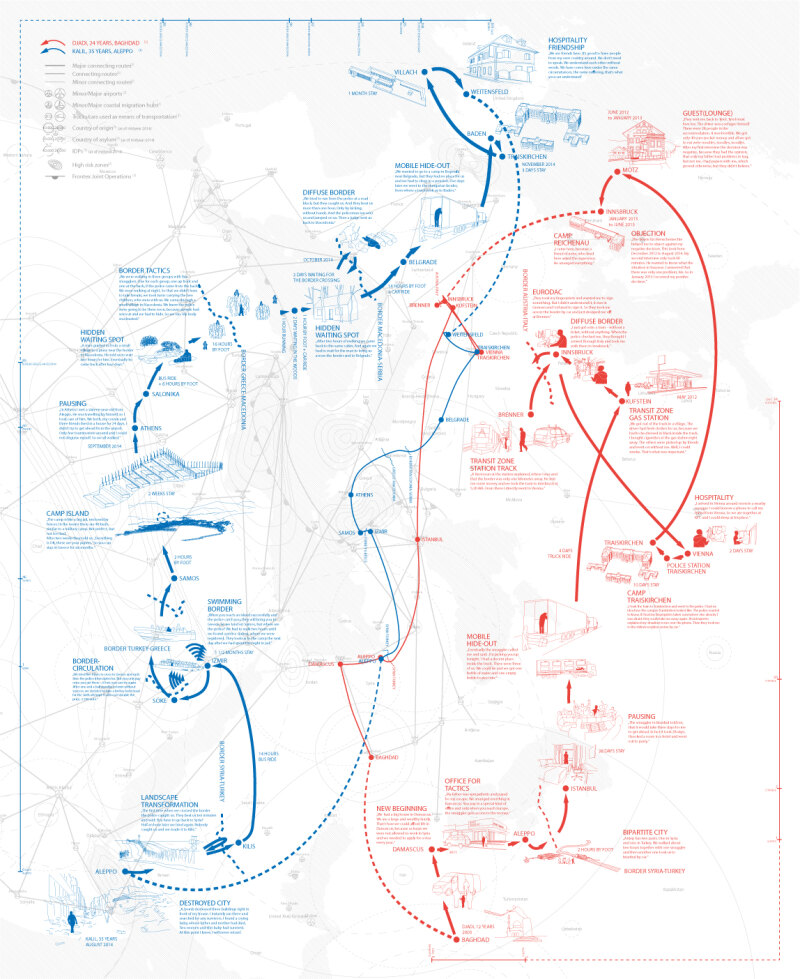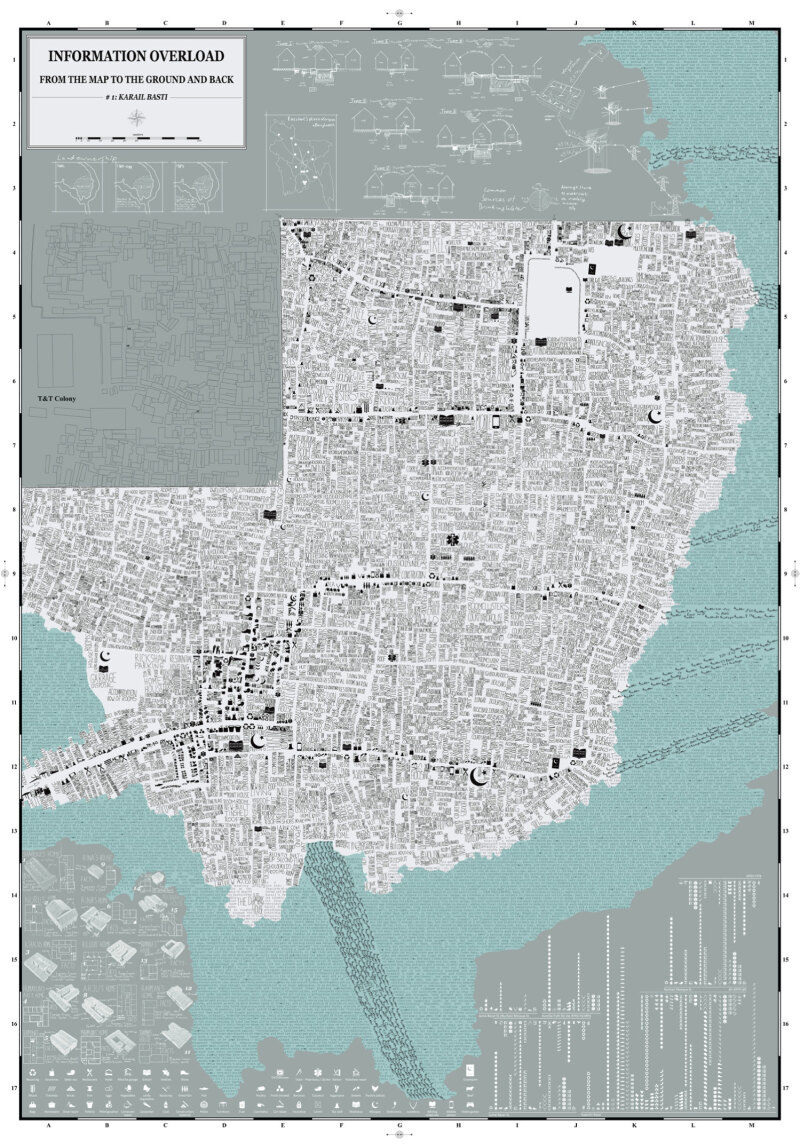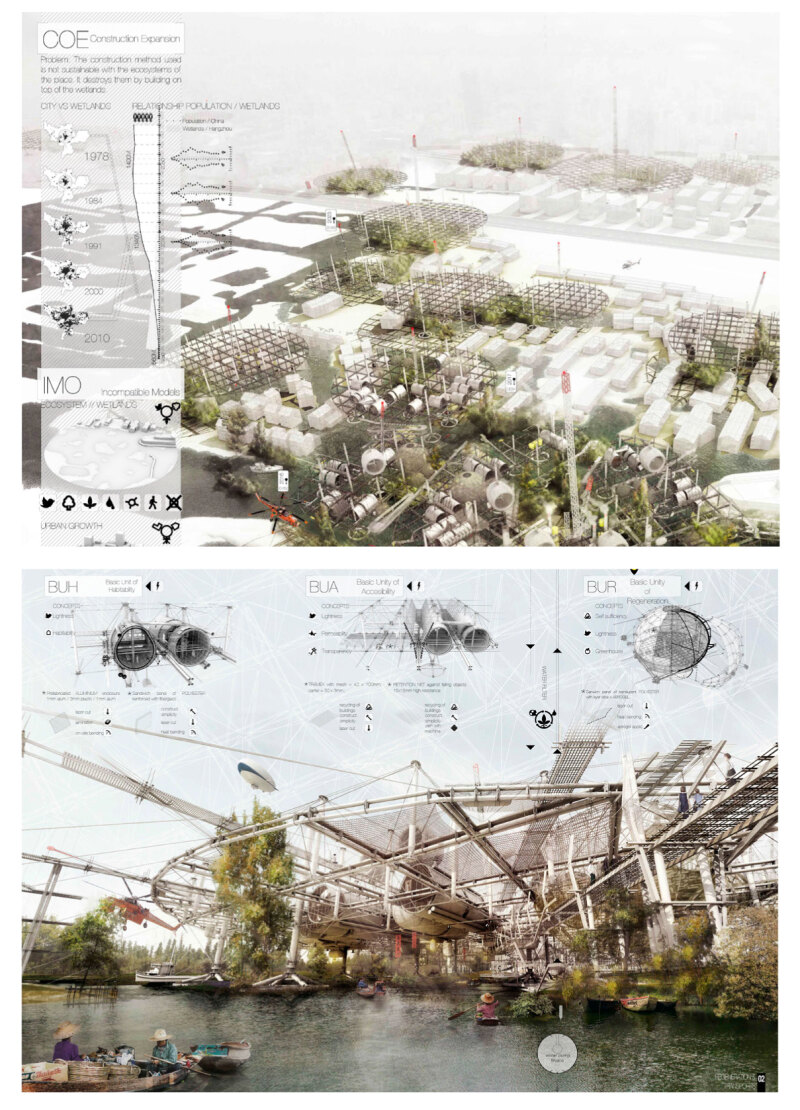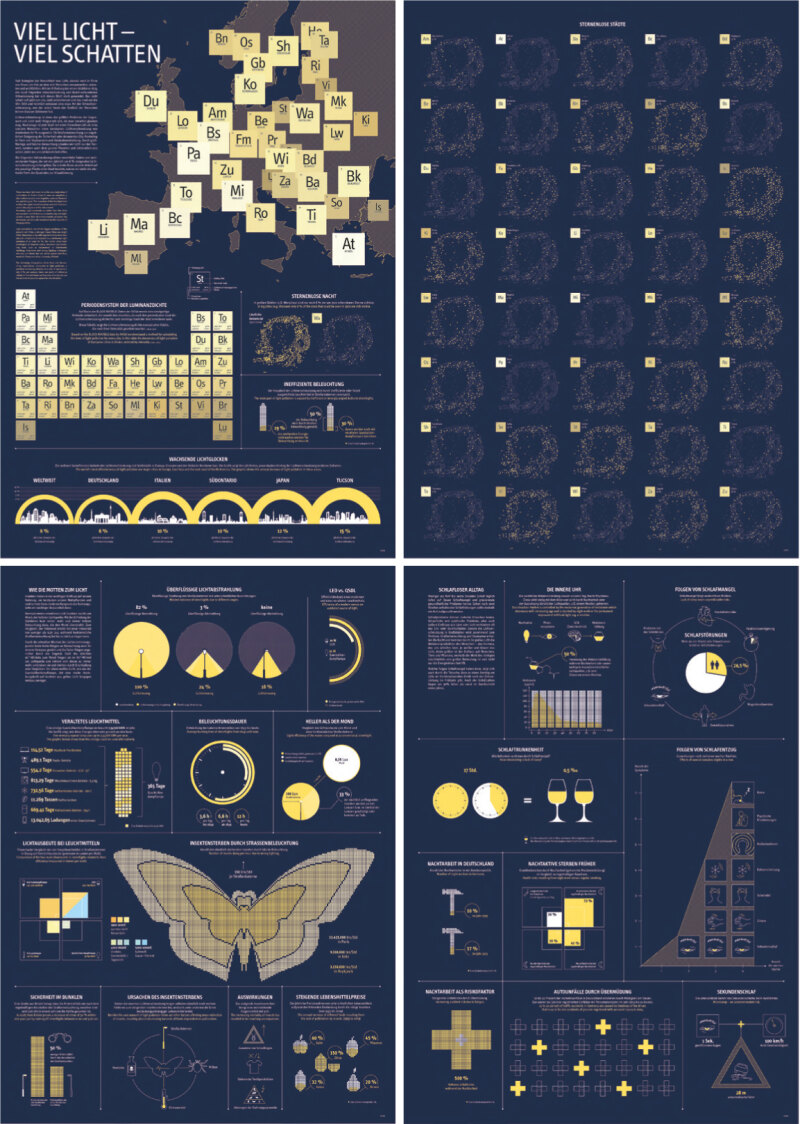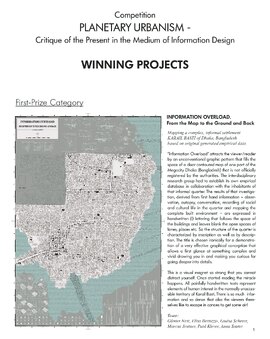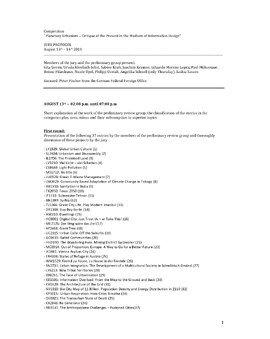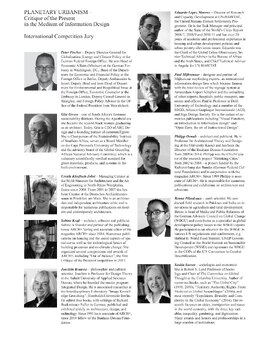For English version see below
Der von der Zeitschrift ARCH+ mit Unterstützung des Auswärtigen Amtes und des Wissenschaftlichen Beirats der Bundesregierung (WBGU) ausgelobte internationale Wettbewerb PLANETARY URBANISM – Kritik der Gegenwart im Medium des Information Design ist entschieden worden. Die Auswahl unter den 125 eingesandten Arbeiten fiel nicht leicht. Die Jury entschied sich dafür, vier Preise der 1. Kategorie à 2400 Euro, 7 Preise der 2. Kategorie à 1300 Euro und sieben Preise der 3. Kategorie à 750 Euro zu vergeben. Die erfreulich hohe Wettbewerbsteilnahme aus 31 Ländern zeigt das breite internationale Interesse an den Problemen und Herausforderungen des Urbanisierungsprozesses wie auch am Information Design:
Migration, Asylsuche und Wanderarbeit, eine der brisantesten Fragen der Verstädterung, bildeten einen größeren Themenkomplex. In vielen Beiträgen wurde Stadtkritik im Hinblick auf Umweltverbrauch und die ökologischen sowie die psychischen und physischen Belastungen des Menschen artikuliert, genauso wie die Kritik an spezifischen sozialunverträglichen Stadtpolitiken, an Privatisierung und Spekulation. Im Fokus standen auch Probleme der infrastrukturellen Grundversorgung und des Verkehrsinfarkts rasant wachsender Städte sowie Fragen der Sicherheit, der Aufenthaltsqualität und der Integration von Natur in die Städte. Demgegenüber gab es eine erfreuliche Anzahl positiver Vorschläge in strategischer Absicht von einem Bottom-up Urbanismus, einer ganzen Reihe von Apps als Tool für komplexe Planungsaufgaben bis zu konkreten Realutopien, politischen Visionen und sci-fi-artigen Szenarien. Thematisiert wurde auch die Digitalisierung aller Lebensbereiche, sowohl als kritische Hinterfragung des "modernen Lebens" wie auch als Chance der Angleichung der Lebensverhältnisse. Die lokalen und globalen Effekte globaler Ökonomien wurden an recht ungewöhnlichen, weniger bekannten Beispielen dokumentiert. Nicht zuletzt lag ein Schwerpunkt auf der adäquaten Darstellung sozialer Sachverhalte und Methoden der Kartierung.
Genauso vielfältig wie die gewählten Themen ist auch die grafische Transformation der Inhalte. Viele Arbeiten entwickelten eine eigene anschauliche Bildersprache und eigenständige grafische Formen, um quantitative Verhältnisse darzustellen. Neben den “klassischen” Informationsgrafiken wurden auch andere, neuartige Wege der Übermittlung und Ansprache des Publikums gesucht. Auffällig ist dabei, dass weniger das technische Potenzial der elektronischen Medien als methodische Überlegungen eine Rolle spielen. So scheint im Information Design neben der Abbildung empirischer Fakten durch quantitative Angaben – nach Neurath die “Sprache der Zahlen” – die unmittelbar auf qualitativem Wege transportierte Aussage an Bedeutung zu gewinnen. Hier lässt sich bei aller Unterschiedlichkeit des Vorgehens eine Gemeinsamkeit ausmachen: der Rekurs auf narrative Formen in der Kommunikation von Inhalten. Kurz gesagt, es wird eine Geschichte erzählt. Ob zeichnerisch, fotografisch, filmisch, sprachlich, ob mit den Mitteln der Collage oder in separaten Darstellungen, ob als Fiktion oder Satire, ob mit Understatement oder Übertreibung ist erst einmal zweitrangig gegenüber dem experimentellen Charakter dieser neuen Form von “Informationsgrafik”. Diese Tendenz hatte sich bereits sehr deutlich im ersten Kritik-der-Gegenwart-Wettbewerb "Out of Balance" gezeigt.
Die 125 eingesandten Wettbewerbsbeiträge wurden in Teams unterschiedlicher Größe von insgesamt 386 Teilnehmern erarbeitet. Rund 76 % der Teilnehmer sind Studenten, der Rest wird von freischaffenden Büros bzw. temporären Arbeitsgemeinschaften gestellt. Der hohe Anteil an Studenten erklärt sich daraus, dass einige Hochschulen sowohl im Design- wie Architekturbereich den Wettbewerb in ihr Lehrprogramm aufgenommen haben.
Die Ergebnisse des Wettbewerbs werden in der Sonderausgabe PLANETARY URBANISM veröffentlicht und 2016 im Kontext der UN-Habitat-Konferenz in Quito, Ecuador, ausgestellt.
